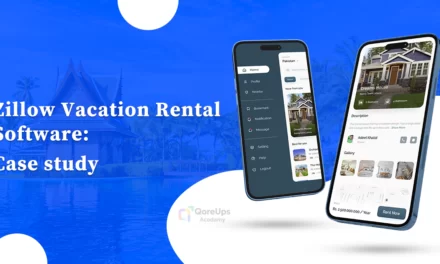Hy fellow entrepreneurs! You all know about the brand VRBO, the best vacation rental marketplace.
But, how did it become “The VRBO” from HomeAway? Let’s find this in this case study.
The landscape of the vacation rental marketplace has experienced a seismic shift over the past few decades, with online platforms revolutionizing the way travelers find accommodations.
Among these platforms, VRBO stands out as a pioneer, shaping the industry’s trajectory since its inception in 1995.
From humble beginnings to its current status as a leading player in the market, VRBO’s journey is one of innovation, strategic evolution, and adaptation to changing consumer preferences.
This comprehensive exploration delves into VRBO’s evolution, strategic decisions, market positioning, challenges, opportunities, and vision for the future of travel.
Genesis And Growth of VRBO
VRBO’s story began with a simple idea: to connect homeowners with travelers seeking unique vacation rentals.
David Clouse, a homeowner himself, recognized the potential of renting out his ski condo to cover expenses. Inspired by this concept, Clouse launched VRBO in Aurora, Colorado, as one of the first online vacation rental marketplace.
The platform quickly gained traction, attracting both homeowners eager to monetize their properties. Also, travelers seek authentic experiences beyond traditional hotels.
The early success of VRBO highlighted a clear demand for a marketplace that facilitated direct communication between property owners and travelers.
As VRBO expanded its reach and offerings, it became a trusted vacation rental software for finding whole-property rentals, ranging from cozy cabins to luxurious villas.
By providing a diverse array of accommodations and personalized experiences, VRBO carved out a niche in the vacation rental marketplace. Also, sets the stage for further growth and innovation.
Acquisition by HomeAway
In 2006, VRBO underwent a transformative acquisition by HomeAway, a leading vacation rental marketplace.
This acquisition marked a significant milestone in VRBO’s journey. By providing access to resources, technology, and expertise that accelerate its growth trajectory.
Under HomeAway’s stewardship, VRBO expanded its offerings. And also, enhanced its user experience, and solidified its position as a trusted vacation rental marketplace.
HomeAway’s acquisition of VRBO highlighted the increasing prominence of online marketplaces in shaping the travel industry.
By leveraging HomeAway’s global network, VRBO expanded its reach, attracting a diverse community of travelers and property owners from around the world.
Transition From HomeAway to VRBO
In 2019, VRBO embarked on a strategic rebranding initiative, transitioning from HomeAway to VRBO. This decision was driven by a desire to consolidate brand identity and streamline marketing efforts. Additionally, it strengthens the market position in the face of rising competition.
Key Factors Behind the Rebranding To VRBO
- Brand Consolidation: With multiple brands operating within the same market segment, there was internal competition and customer confusion. Consolidating under the VRBO brand simplified the brand portfolio and focused resources on a single identity.
- Market Positioning: VRBO’s emphasis on offering entire homes resonated with families and group travelers seeking spacious accommodations. By aligning the brand with this core market segment, VRBO could differentiate itself from competitors. Also, capitalize on its unique value proposition.
- Competitive Response: The rise of competitors like Airbnb necessitated a stronger, more unified brand presence. By rebranding to VRBO, the platform could assert its position in the market and attract a broader audience of travelers and property owners.
- Global Expansion: Streamlining the brand under VRBO facilitated international growth, particularly in markets where HomeAway had less recognition. The unified brand identity provided a strong foundation for expanding into new territories and capturing market share.
Execution of the Strategy In VRBO Vacation Rental Marketplace
The rebranding from HomeAway to VRBO was meticulously planned and executed with an emphasis on several strategic elements:
- Unified Branding: The transition included a comprehensive overhaul of the website, mobile apps, and marketing materials to reflect the VRBO brand, ensuring consistency across all customer touchpoints.
- Marketing Campaigns: Expedia launched aggressive marketing campaigns to introduce the rebranded VRBO to a global audience, leveraging digital, print, and broadcast media to maximize reach.
- Customer Communication: Clear, consistent communication with existing HomeAway customers and property owners was prioritized to ensure a smooth transition. And addressing concerns and highlighting the benefits of the change.
- Technology Integration: Behind the scenes, significant efforts were made to integrate and optimize the technological infrastructure supporting the platform, enhancing user experience and operational efficiency.
Outcomes
The rebranding of HomeAway to VRBO has had profound implications for the company and its users. Also, the vacation rental marketplace at large:
- Increased Brand Recognition: VRBO has seen a notable increase in brand awareness and recall, helping it to stand out in a vacation rental marketplace.
- Market Share Growth: The consolidation under the VRBO brand has contributed to increased bookings, revenue, and market share, as the platform can more effectively compete with Airbnb and other rivals.
- Improved User Experience: The focus on a single brand has allowed for greater investment in user experience improvements, benefiting both travelers and property owners.
- Strategic International Growth: With a unified brand, VRBO has been better positioned to expand into new markets, particularly in Europe and Asia, where HomeAway had previously struggled to gain traction.
VRBO Vacation Rental Marketplace Global Statistics
- Global Presence: Over 2 million homes are listed worldwide in more than 190 countries.
- User Reviews: More than 14 million user reviews are available.
- Awareness and Market Position: In the reservation and online booking market, VRBO holds a 1.15% market share and competes with 22 other tools. Among its top competitors in this category is Tripadvisor, which commands a 40.07% market share. Additionally, Airbnb with 30.33%, and Expedia with 9.15% market share.
- Revenue Growth: VRBO experienced robust revenue growth, with a year-over-year increase of 35%, making it one of the top performers in the vacation rental marketplace.
- Pet-Friendly Accommodations: VRBO offers 450,000 pet-friendly stays.
- User Demographics: 53% of VRBO users have a household income of over $100,000.
- Online Presence and Search Volume: VRBO is searched 2.2M times per month on Google. VRBO.com had roughly 20 million unique monthly visitors in June 2023.
- User Profile: The average age of VRBO users is 42.
- Mobile App Usage: VRBO’s mobile app had 48 million monthly active users in 2023.
- Booking Trends: 51% of VRBO bookings in 2023 were domestic.
- Accommodation Preferences: 48% of VRBO users prefer condos/apartments.
- Length of Stays: 25% of VRBO bookings are for stays between 1 and 3 weeks.
Navigating the Competitive Landscape
In a competitive market, VRBO has carved out a distinct niche by focusing exclusively on whole-property rentals. This strategic positioning has allowed VRBO to attract a specific segment of travelers seeking spacious accommodations and privacy.
Business Model Of VRBO Vacation Rental Marketplace
VRBO operates on a marketplace model, facilitating transactions between property owners (or managers) and travelers. Homeowners list their properties on the platform, setting their rental prices, availability, and house rules.
Travelers can then search the platform for accommodations that meet their needs and book their stay. Also, they can communicate with hosts directly through the platform.
VRBO earns revenue through booking fees charged to travelers and listing fees or commissions from hosts, depending on the pricing model chosen by the property owner.
Key Features and Offerings
- Wide Selection of Properties. VRBO offers a diverse range of vacation rental properties, including houses, apartments, condos, villas, cabins, and unique accommodations.
- User-Friendly Platform. The website and mobile app provide intuitive search and filter tools, allowing users to find properties based on location, price, amenities, and other criteria.
- Secure Payment System. VRBO provides a secure platform for transactions, ensuring the safety of personal and payment information for both guests and hosts.
- Property Insurance and Guarantees. To protect against the unexpected, VRBO offers various forms of insurance. Also, guarantee products for both property owners and travelers, such as the Book with Confidence Guarantee. This provides travelers with payment protection, 24/7 customer support, and rebooking assistance for qualifying bookings.
- Customer Support: VRBO provides customer service and support for users, assisting with booking issues, disputes, and other inquiries.
Market Positioning and Strategy
VRBO’s market strategy focuses on offering entire homes, distinguishing itself from competitors like Airbnb, which also lists shared spaces.
This focus appeals to specific segments of the travel market, such as families and groups looking for spacious accommodations and privacy, which aren’t always available in hotels or shared accommodations.
The acquisition by Expedia Group has further strengthened VRBO’s position in the market, providing resources for global expansion and integration into Expedia’s broader portfolio of travel services.
Challenges and Opportunities
While VRBO has enjoyed significant success, it also faces challenges and opportunities in the vacation rental marketplace.
Challenges
- Competition: VRBO competes with established players like Airbnb and Booking.com, as well as emerging platforms entering the market.
- Regulatory Environment: Regulatory challenges vary by location, with some cities and countries imposing restrictions on short-term rentals.
- Market Saturation: The vacation rental marketplace is becoming increasingly saturated, requiring VRBO to differentiate itself and maintain growth.
Opportunities
- Global Expansion: There is significant growth potential in international markets, particularly in regions where the vacation rental marketplace is still developing.
- Technological Advancements: Investing in technology can enhance the user experience and operational efficiency, providing a competitive advantage.
- Sustainable and Responsible Travel: As travelers seek more sustainable and community-friendly travel options, VRBO can differentiate itself by promoting eco-friendly properties and practices.
The Future of VRBO
Looking ahead, VRBO’s success will depend on its ability to adapt to the changing dynamics of the travel industry and meet the evolving needs of travelers and property owners. Continued investment in technology, innovation, and customer service will be essential for maintaining a competitive edge.
By focusing on its core offering of entire home rentals and leveraging the resources and expertise of Expedia Group, VRBO is well-positioned to continue its growth and maintain a competitive edge in the vacation rental marketplace.
The transition from HomeAway to VRBO marked a significant milestone in the platform’s history, streamlining its brand identity and sharpening its market focus.
As VRBO moves forward, its success will depend on its ability to innovate, adapt to regulatory landscapes, and continue providing value to its users in an increasingly competitive environment.
Key Focus Areas
- Technology and Innovation: VRBO can leverage technology to enhance the user experience, optimize property management, and personalized recommendations for travelers.
- International Expansion: Expanding into new markets offers opportunities for growth and diversification, but it requires understanding local preferences and regulations.
- Sustainability Initiatives: Embracing sustainable practices and promoting eco-friendly properties can appeal to environmentally conscious travelers and contribute to responsible tourism.
Challenges to Address
- Regulatory Compliance: Navigating regulatory landscapes requires ongoing monitoring and adaptation to ensure compliance with local laws and regulations.
- Competition: VRBO must continue to differentiate itself from competitors and innovate to stay ahead in a rapidly evolving market.
- Community Impact: Balancing the economic benefits of vacation rental marketplace with the potential impact on housing markets and communities requires careful consideration and responsible practices.
Lessons Learned From VRBO
The transition from HomeAway to VRBO offers several key lessons for businesses considering a similar rebranding or brand consolidation effort:
- Clarity of Vision: Successful rebranding requires a clear strategic vision that addresses the needs of the market, competitive pressures, and long-term business goals.
- Customer-Centric Approach: Maintaining open lines of communication with customers and stakeholders throughout the process is crucial for retaining trust and loyalty.
- Investment in Marketing: A strong, well-funded marketing strategy is essential for introducing the new brand to the market and building momentum.
- Flexibility and Adaptation: The ability to adapt to market feedback and make adjustments during and after the rebranding process is key to achieving desired outcomes.
In Conclusion,
The evolution of VRBO from a simple idea to a leading force in the vacation rental marketplace is a testament to the power of innovation, strategic rebranding, and customer-centric focus.
As the platform looks to the future, its story serves as an inspiring case study for businesses aiming to navigate the complexities of the digital age and the competitive landscape of the global travel industry.
By understanding the lessons learned from VRBO’s journey, businesses can glean valuable insights into brand transformation, market positioning, and the importance of adapting to changing consumer preferences and market dynamics.
As VRBO looks to the future, its commitment to innovation, sustainability, and customer satisfaction will undoubtedly shape the future of the vacation rental marketplace for years to come.






